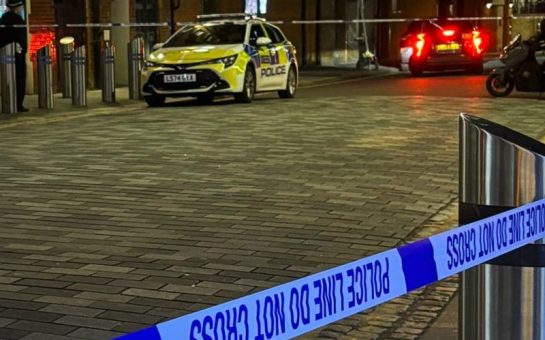The false widows have been spotted in Twickenham.

South West London has been caught up in the recent web of hysteria regarding the spread of allegedly ‘killer’ spiders.
Twickenham is the latest place to record sightings of the venomous arachnid, but for every person scared for their lives, there is another who couldn’t care less.
SWLondoner attempts to get to the heart of this 8-legged horror story.
False widow spiders, otherwise known as steatoda nobilis, appear to be the UK’s most venomous spider, and whilst it is technically possible that someone with a serious allergy could die from their bite, this has never happened in the UK.
A Sutton resident, Joel, killed five false widows on his doorstep on Sherwood Park Road this week.
“They seem to be spreading fast, I am not very mobile at the moment due to ill health so I want to stop them before they enter the home,” he said.
“We were concerned as one made it through the door, and it looked like there were babies.”
They spiders have been residing in Devon a long time, but due to climate changes they have begun to spread North over the past few years, making webs over the South East.
Stories arose in early 2012 about the spiders injuring people, with a Dorset woman nearly losing her arm after being bitten in April.
In the past few weeks sightings in South-East London have soared, prompting some unashamedly sensationalist headlines.
‘Rise of the deadly false widow… sightings of Britain’s MOST POISONOUS spider on the up’ ran the Daily Express on September 26 2013.
However, experts at the Natural History Museum maintain bites from the spider are rare and often only result from rough handling of them.
Symptoms are typically no more severe than a bee or wasp sting, and include chest pains, swelling and tingling.
There have been sightings across Surrey, as well as Orpington, Greenwich and recently Essex. The Natural History Museum’s Insect Information Service says the spider is likely to spread northwards in years to come.
They live in walls, fences and trees and eat insects and other spiders and should be left alone if found.
Tony Wileman, a conservation ecologist at the London Wildlife Trust, told the Independent: “It is recommended that if bitten by a spider thought to be a false widow then medical attention should be sought.
“If you must remove the spider from your home, please capture it using a jar and a stick and try not to touch the spider with your hands.”
The spiders originated from the Canary and Madeiran Islands over 100 years ago.
Photo courtesy of by Valter Jacinto, with thanks.
Follow us @SW_Londoner




